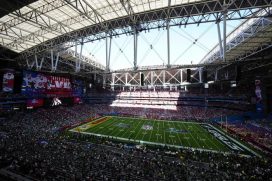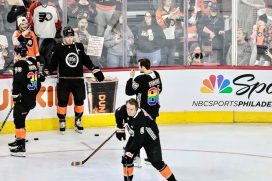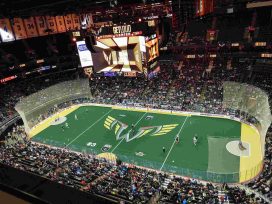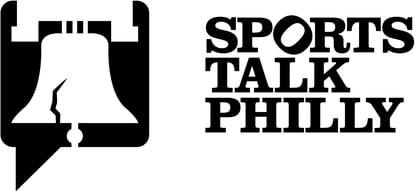Posted by Mike Frohwirth
Last night's loss was a tough one. Mostly because losing to the Mets ever is just not fun. Of course, we didn't expect to win every game, did we? Even the best teams will lose 60-70 games. There are two questions we should consider, with respect to Charlie Manuel's performance last night. First, did he make any mistakes that contributed significantly to the defeat? Second, will any of the decisions he made adversely affect the Phillies' ability to win future games?
Cole Hamels pitched 2.2 innings, allowing 6 runs (7 hits/2 walks/3 strikeouts). He faced 18 batters, and threw 68 pitches (37 strikes, 31 balls). He did not allow an extra base hit. Did Manuel remove him from the game at an appropriate time?
Hamels did not have his best stuff on Tuesday night. He had command problems, which were exacerbated by Home Plate Umpire Chris Guccione's inconsistent strike zone. Hamels' biggest issue, however, was that balls just kept on finding holes. In the long run, we should expect approximately 30% of batted balls to land for base hits (.300 BABIP). Tuesday night, Hamels had 58.3% of batted balls (.583 BABIP) fall for hits. Hamels was very unlucky.
This kind of poor luck could reverse itself at any time (or never). This made Manuel's decision of when to remove Hamels all the more difficult. Manuel opted to give Hamels the hook after opposing pitcher Chris Young's second hit of the third inning. At that point, the Phillies' Win Expectancy had withered to 5.7%. It could be argued that Hamels should have been removed earlier, before so much damage had been done. Given that the "damage" consisted of a bunch of singles and walks, I think Manuel handled Hamels appropriately. After the second hit by Young, which made the score 6-0, there was no benefit to keeping the frustrated and embattled Hamels in the game.
How well did Manuel handle the bullpen?
With the Phillies down by six runs in the third inning, Manuel's objective was to finish the game without hurting the Phils' chances in a future game. He did an excellent job in achieving this objective. He avoided using Bullpen Duo members Ryan Madson and Jose Contreras. Madson and Contreras should both be available for meaningful situations on Wednesday night. Long reliever Kyle Kendrick pitches 2.1 innings (42 pitches) and may not be available Wednesday, but this was acceptable and necessary. David Herndon, J.C. Romero, Dany Baez, and Antonio Bastardo each followed with a single inning of work, and all should be available again on Wednesday. J.C. Romero was permitted to face right-handed opponents, but this is defensible, considering that it was a low-leverage, inning-eating situation. Bastardo was able to make his season debut in a low pressure situation.
Should Manuel have done anything differently, to help the offense produce more?
Nothing apparent. He had his best lineup in, and they went 1 for 6 with runners in scoring position, leaving nine men on base. Ben Francisco was robbed of two extra base hits (possible homers) by the wind. It just didn't seem to be the Phillies' night.
Should Manuel have removed any of his starting position players, later in the game?
With a 7-1 deficit (.7% WE) after seven innings, Manuel probably could have removed Raul Ibanez and Placido Polanco. Considering that Polanco's spot in the order had come up in the bottom of the seventh, Polanco would have been a prime candidate for some bonus rest and relaxation. I don't really understand why Manuel doesn't go to his reserves in that type of situation. I would guess it's because the player(s) prefer to remain in the game, but the last thing the Phillies need is another key injury. Especially in a game that has already been decided.
Despite Manuel's hesitance to remove his regulars late in the game, he did a satisfactory job on Tuesday night. A manager's impact on game results is somewhat limited, and not even the 2011 Phillies can win every game.







